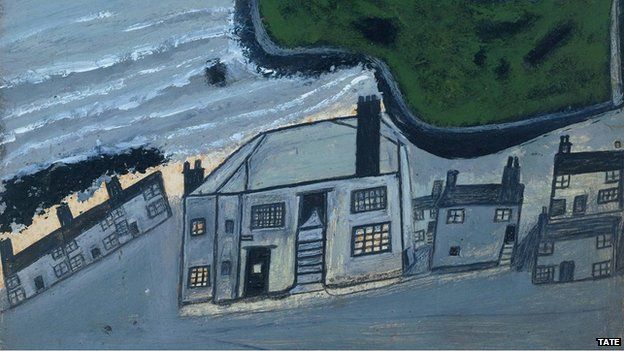New copyright rules allow 'orphan' artworks to find homes
- Published

Millions of photos, diaries, letters and recordings whose copyright owners cannot be traced may be made accessible for the first time under a new scheme.
The UK government estimates that 91 million so-called "orphan works" exist.
Museums, publishers and film-makers will now be able to use them as long as they have done a "diligent" search for the rights holders and pay a fee.
Photographers had raised concerns that it would make it possible for people to take their images from the internet.
Launching the licensing scheme on Wednesday, Intellectual Property Minister Baroness Neville-Rolfe said it would enable "access to a wider range of our culturally important works".
"The scheme has been designed to protect right holders and give them a proper return if they reappear, while ensuring that citizens and consumers will be able to access more of our country's great creations, more easily," she said.
The Department for Business, Innovation and Skills gave several examples of how it could work:
- The Tate gallery would be able to use unpublished literary works of artist Alfred Wallis, who died in 1942 with no surviving family.
- The Museum of Childhood has tried and failed to trace the owners of photos taken for toy manufacturer Lines Brothers, which went bankrupt in 1971, while the photographic studio is also thought to have closed.
- The Museum of the Mind wants to use creative works by patients of Bethlem Royal Hospital, which were often made anonymously.
- The National Records of Scotland could use unpublished historical maps and plans where the author's name may be known but their families cannot be found.
Last year, photographers and illustrators launched a petition complaining that their work could be used online by others providing they "have made a small effort to search for the original owner".
Intellectual property specialist Iain Connor, who is a partner at law firm Pinsent Masons, told the BBC the requirement for a "diligent" search, the application process and the fee should prevent people freely taking and re-using things on the internet.
"Striking a balance to allow those [works] to be used sympathetically, appropriately and in context seems to be a genuinely worthy and noble cause," he said.
"The implementation of it needs to be done delicately so it doesn't become a charter to allow people to rip off the genuine people who are trying to make a living out of commercially exploiting their copyright works."
The Chartered Institute of Library and Information Professionals has launched a campaign to reduce the term of copyright protection in unpublished text-based works to the author's lifetime plus 70 years.
Presently, the duration of copyright for unpublished works created before 1989 ends in December 2039.
The Intellectual Property Office said the government will shortly publish a consultation on reducing the duration of copyright on those works.
- Published29 April 2013